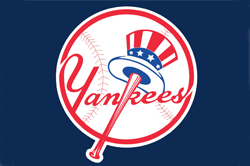Happy hour with Hugo
Thursday, October 13, 2011

Barack Obama should invite the President of Venezuela for a mojito
Barack Obama should invite Hugo Chavez over for a couple of mojitos, discuss with his counterpart (a baseball player in his youth) the symbolism of Venezuelan-born Bobby Abreu playing for the Yankees, congratulate Chavez on his efforts on behalf of Latin America’s poorest people, and assure him that the U.S. is committed to helping him in this heroic task.
Obama should do this because it’s the right thing to do - and because he has little choice.
By the end of 2008, the Bolivarian Republic of Venezuela will have agreed to forego close to $1 billion in annual oil revenues, by offering discounted prices under the PetroCaribe Program to 19 countries, including most of Central America and almost every Caribbean nation.
In return, Venezuela expects – reasonably – that millions of people in these countries will be grateful, and that their leaders will be inclined to support the Chavez regime at the United Nations and other international forums.
In addition, the popularity of the program could result in pro-Chavez governments being elected in some member states.
Since the PetroCaribe zone forms a giant potential buffer between the United States and the rest of the hemisphere, the next president should be looking at alternatives to his country’s current Latin American policy, which mainly consists of deporting poor Mexicans, and trying to limit Americans’ access to cocaine by fighting a drug war in other people’s countries.
Under a new administration, the United States should engage the region in more productive ways.
It needs to realize that it can’t promote free trade deals, which in fact protect its domestic market from a wide variety of imports, especially agricultural products, which are vital to Latin America’s economy.
Another good option would be providing support to local education systems, through a dynamic, non-partisan program – the Teach Corps? – whose participants help train tomorrow’s teachers in areas that include math, science and computing.
The United States can operate a good neighbor policy in Latin America independently of Chavez.
An alternative involves trying to work with the Venezuelan president, who will be in power until 2013 (and who may be influential longer than that), who controls massive revenues from the globe’s sixth largest oil reserves, and for whom the opportunity to collaborate with the world’s most productive country could be more attractive than many Americans may think.
The Venezuelan economy, which still performs dismally despite being awash in oil money, can’t expect much help from its current best friends - Cuba, Nicaragua, Ecuador and Bolivia – since these are some of the world’s least-developed nations.
By contrast, leading-edge technology and outstanding managers (including millions of Spanish-speaking professionals) are available in the United States (at competitive prices no less, thanks to the dollar’s collapse).
To make the deal work, the next U.S. president has to understand - 20 years after the fact - that the cold war is over, and that demonizing Chavez only convinces many Latin Americans that Washington’s century-old policy of opposing left-wing leaders while propping up right-wing dictators is alive and well in 2009.
It will not be easy for the United States to make overtures to a leader whose economic policies include nationalizing key industries and increasing the degree to which the economy is centrally planned.
On the other hand, Venezuela has the right as a sovereign country to have the wrong economic program.
To improve its tattered image in the hemisphere, the United States needs to be more generous with its neighbors.
As far as Venezuela is concerned, Obama should try to break the cycle of extremism on both sides by looking for ways of cooperating instead of vilifying.
Another mojito, Senor Presidente?
Fred Blaser
Chairman
Republica Media Group
